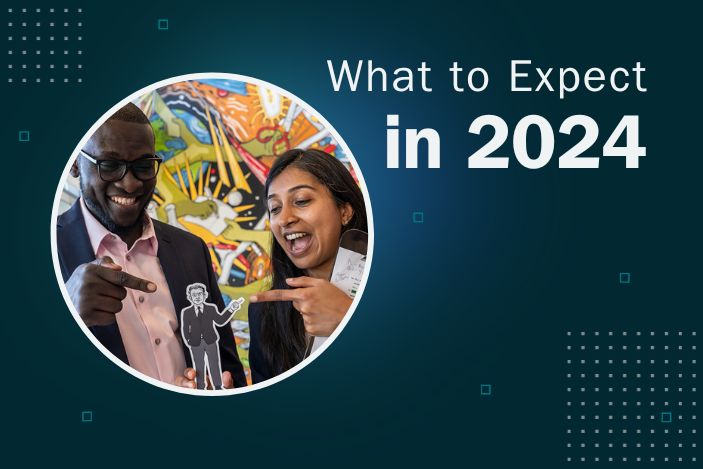This is one of several interviews in a series about the changes we can expect at the Lab during 2024.
The Career Pathways Office is home to many at the Lab starting their research careers. Career Pathways offers several programs that provide career and professional development to early-career employees, including the popular research SLAM. Other programs include the Early Career Enrichment Program, which helps early career researchers develop professional networks at the Lab, and career and professional development training opportunities.
The office director, Meg Rodriguez, discusses what is on tap for Career Pathways in 2024.
Q: Meg, what can we look forward to in 2024 from the Career Pathways Office?
A: We had a successful 2023, with the first scientific leadership and management skills course with over 100 people participating over the three days. We are doing it again this year, collaborating with UC Berkeley, UC Davis, Gladstone Institutes, and Genentech. The course will cover managing and leading others by being an inclusive leader and creating a positive workplace culture. That will be three days in April, and while it is geared toward postdocs, it is open to anyone.
Q: What was the feedback from the first session?
A: People have said the training is valuable as they start their career to learn how to be a PI and how to start and manage a group. For the most part, our postdocs have spent years honing their research skills with little focus on the people side of working in an organization. These skills are built over time, so those who aspire to be a PI should build leadership skills at the start of their career. Registration is open now.
Q: The SLAM went national last year. Is that happening again?
A: Yes, it is. We are excited to work with the other national labs to bring this engaging program to the national stage. Last year, we had incredible judges, including Deputy Secretary David Turk from the DOE, France Cordova, 14th NSF Director, Steve Welby, Deputy Director for National Security at the OSTP, and Marcia McNutt, president of the National Academy of Science. We had audience members from the national labs, DOE, and Congressional staff. The location of the Congressional Auditorium in Washington, D.C., was incredible. Watch for details later this year on how to participate in the SLAM.
Q: There is incredible value in participating in the SLAM for our researchers, but how does it support the Lab’s mission?
A: The SLAM is a chance to show the value of the labs to the nation by presenting science in short, easy-to-understand presentations. It broadens support for our research and lets the nation see how their tax dollars are used for future benefits.
It also directly helps researchers. Scientists hear from other scientists in different fields, opening up new collaborations. We had that happen already, where one scientist was intrigued by what they heard in the SLAM and immediately contacted the presenter to see how they could work together. For those who work in non-research areas of the Lab, it is an opportunity to learn about the research and, in some cases, see how their work in Operations makes it possible for the researcher to work.
Q: What else can we look forward to this year?
A: The Postdoc Career Fair is in August. We will host it with UC Berkeley on their campus and plan to host 20 companies from industry, along with seminars including how to negotiate salaries in industry. We had over 250 people attend last year, and we expect even more to attend this year.

1 Comment
One major benefit for researchers particpating in the SLAM–and in the rounds of selection leading up to the event–is honing their communications skills to be able to present their science and technology development in a concise, engaging way to a large audience. Those principles will serve them for the rest of their careers.